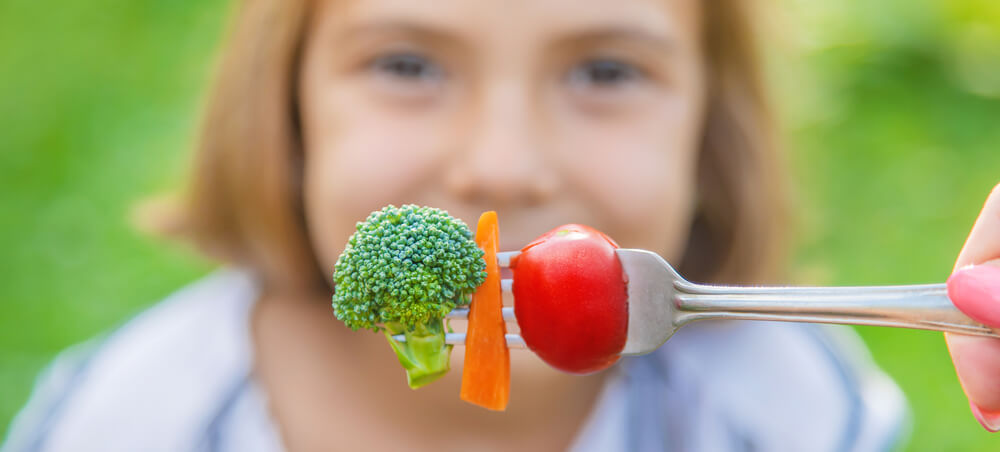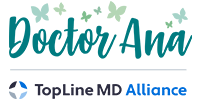The majority of parents are well aware that their kids need vitamins, minerals, and other vital nutrients to remain healthy. But it’s not always easy for moms and dads to know what are nutrients that most benefit kids, what daily essential nutrients their children need, and which types of food contain these nutrients. On top of that kids are notoriously picky when it comes to food because they don’t really grasp what are nutrients and what is junk food. Ask the average toddler what is the most important nutrient or what kind of food are particularly nutritious and he or she would probably say ice cream.
The fact remains, however, that toddler nutrition is one of the three pillars that underlie your kid’s future development. The other two are environmental and genetic factors. It is important, therefore, that parents know which nutrients are particularly important for preschool children. And they absolutely have to make sure their toddler consumes enough of the 6 essential nutrients (Carbohydrates, Fats, Proteins, Vitamins, Minerals, Water).
The Link Between Academic Performance And Nutrition
At first glance, it might appear outlandish to claim that toddler nutrition will eventually impact a child’s ability to learn. Research has, however, proven that there is a clear link between the vital nutrients you consume during your childhood years and academic performance later in life.
Throughout your child’s early childhood, it is very important to educate yourself on what are nutrients, early childhood nutrition, what are organic nutrients, what is the most important nutrient, what the daily essential nutrients are, and what organic nutrients are and the role they play in your child’s development.
You should also monitor his or her intake of nutrients for the benefit of their future performance. Breastfeeding, for example, seems to boost IQ development, while there is a correlation between iron deficiency and reduced performance and cognition at school going age. Protein is also extremely important because this nutrient is needed for proper growth and development. It are particularly important for preschool children.
One of the reasons for this could simply be that under-nourished kids who miss out on organic nutrients and other vital nutrients will miss more school days because they get sick more regularly than their properly-fed counterparts. This in turn causes them to start lagging behind the other children in the class. But there’s more to it than that: research shows that kids who eat a healthy breakfast that contains the 6 essential nutrients before going to school fare better in tests than those who do have to go without breakfast. Of particular importance in this regard are the daily essential nutrients discussed below.
While eating organic nutrients or any specific food cannot guarantee that your child will be healthy and smart, research shows that the quality of toddler nutrition is directly linked to a child’s future health and academic performance. Parents should therefore know what kind of food are particularly nutritious. Protein for kids, for example, is crucial in early childhood nutrition because this nutrient is needed for proper growth and development.
To make things easier for parents who want to know what are nutrients and what is the most important nutrient that will most benefit their kids, and also what are the daily essential nutrients, we have compiled a list of 11 vital nutrients for toddler development. After reading this you will know what kind of food are particularly nutritious and what should rather be avoided.
1. Carbohydrates For Energy
Despite what the headlines claim, carbohydrates are one of the organic nutrients. They are also your child’s most vital source of energy and therefore a crucial part of toddler development. They help the child’s body to use protein and fat for repairing and building tissue. Carbohydrates are found in many different forms such as starches, sugars, and even fiber. Children should, however, preferably eat less sugar and more fibers and starches.
Below are a couple of good carbohydrate sources:
- Cereals
- Bread
- Crackers
- Rice
- Potatoes
- Pasta

2. Protein For Kids: More Important Than You May Think
Protein plays a particularly important role in early childhood nutrition because this nutrient is needed for proper growth and development. Protein is vital for helping your child’s body build cells, assisting with fighting infection, breaking foods down into energy, and transmitting oxygen. When asking yourself what is the most important nutrient, proteins should definitely be high on the list. Because it’s so important, we have to repeat: this nutrient is needed for proper growth and development.
The following foods are excellent protein sources for kids:
Dairy products, beans, nuts, eggs, fish, poultry, and meat.
3. Fats As An Energy Source and Much More
Fats are an excellent energy source for children and they can also easily be stored by the body. On top of that, they also play a role in helping the child’s body to properly utilize some of the other core nutrients. As such, they play a very important role in toddler nutrition.
The following foods are great sources of fats:
Whole-milk dairy products, fish, meat, cooking oils, and nuts.
4. Calcium: Not Only For Healthy Teeth and Bones
Yes, calcium with one of the 6 essential nutrients with a good reason. It plays a vital role in toddler development because it helps your child’s body to build healthy teeth and bones. It plays an important role in blood clotting and muscle, nerve, and heart function.
According to many pediatricians, kids between the ages of 1 and 3 need about 500mg of calcium per day. Between ages 4 and 8, calcium consumption should be increased to 800mg per day.
The following foods are great sources of calcium:
Milk, yogurt, cheese, egg yolks, ice cream, spinach, broccoli, and tofu.
5. Iron For Hemoglobin
A typical toddler needs around 7mg of iron per day. This is essential in the production of hemoglobin, which in turn is necessary for transporting oxygen to every corner of your child’s body. If your kid consumes too little iron one day but more than enough the next day, their body will adjust. But consistent underconsumption of iron could lead to anemia, which could cause fatigue, muscle weakness, and impaired brain development. Its role in this regard makes iron one of the 6 essential nutrients.
The following foods are good sources of iron:
Iron-fortified cereals, liver, nuts, red meats, beans, poultry, whole grains, and shellfish.
6. Fiber: Not Just For Regular Bowel Movements
Although fiber is necessary to ensure your kid enjoys regular bowel movements, it could also be essential to help prevent cancer and heart disease later in life.
The following foods are excellent sources of fiber:
Nuts, seeds, kidney beans, lentils, and chickpeas.
7. Folate: Important For Both Pregnant Moms And Kids
Folate, which is one of the essential B vitamins, plays an important role in preventing anemia in pregnant mothers and toddlers. That’s because it is vital for the healthy development and growth of body cells. Folate is also of great importance in helping to prevent NTDs (Neural Tube Defects) in babies and for the development of the human nervous system.
What kind of food are particularly rich in folate? Here are some of the most common ones:
Brussels sprouts, black or kidney beans, spinach, asparagus, chickpeas, lentils, and whole-grain cereals.
8. Vitamin D: The Sun Might Not Be Enough
According to the AAP (American Academy of Pediatrics) toddlers, infants, and adults should consume about 400 IU of vitamin D on an average day. This is essential for helping to build strong teeth, bones, and muscles. Although our bodies are able to absorb a significant share of that from the sun’s rays, smog, adverse weather and sunscreens can negatively affect this process.
The following foods are excellent sources of vitamin D, both for toddlers and adults:
Salmon, tuna, milk, eggs, and fortified orange juice.
9. Vitamin A: Not Just For Healthy Skin, Nails, And Hair
Vitamin A serves several purposes, both in adults and children. It helps your eyes to adjust to bright or dim light, boosts growth, helps to fight infection, and keeps your skin, nails, and hair healthy.
Vitamin A is mainly present in animal products, although some vegetables and fruits (including bananas and carrots) contain carotenoids, which our bodies can convert to vitamin A.
The following foods are great vitamin A sources:
Sweet potatoes, carrots, apricots, squash, broccoli, spinach, fish oils, cabbage, and egg yolk.

10. Vitamin C: From Healing Wounds To Strong Teeth and More
Not only does Vitamin C help to fight off the common cold but it also boosts our immune systems, makes the walls of our blood vessels stronger, helps to keep the body’s cells working as a unit, assist with the healing of bruises, cuts, and other wounds, and plays a role in building strong teeth and bones.
The following foods contain high levels of vitamin C:
Mangos, citrus fruits (e.g. oranges), papayas, spinach, cauliflower, broccoli, cabbage, melons, potatoes, tomatoes, and strawberries.
The Bottom Line
We hope you have learned a lot about how important nutrition is for your toddler. Is there perhaps an important question we failed to answer? Please feel free to leave a comment below and we will try to help. Otherwise, you are always welcome to visit our website to find out more about what the best pediatrician in Miami can do for you and your child.
Sources:
https://www.boystownpediatrics.org/knowledge-center/toddler-nutrition
https://www.parents.com/kids/nutrition/healthy-eating/must-eat-nutrients/
https://novakdjokovicfoundation.org/importance-nutrition-early-childhood-development/
https://www.stanfordchildrens.org/en/topic/default?id=kids-need-their-nutrients–1-19820
https://study.com/academy/lesson/organic-vs-inorganic-nutrients-differences-importance.html




